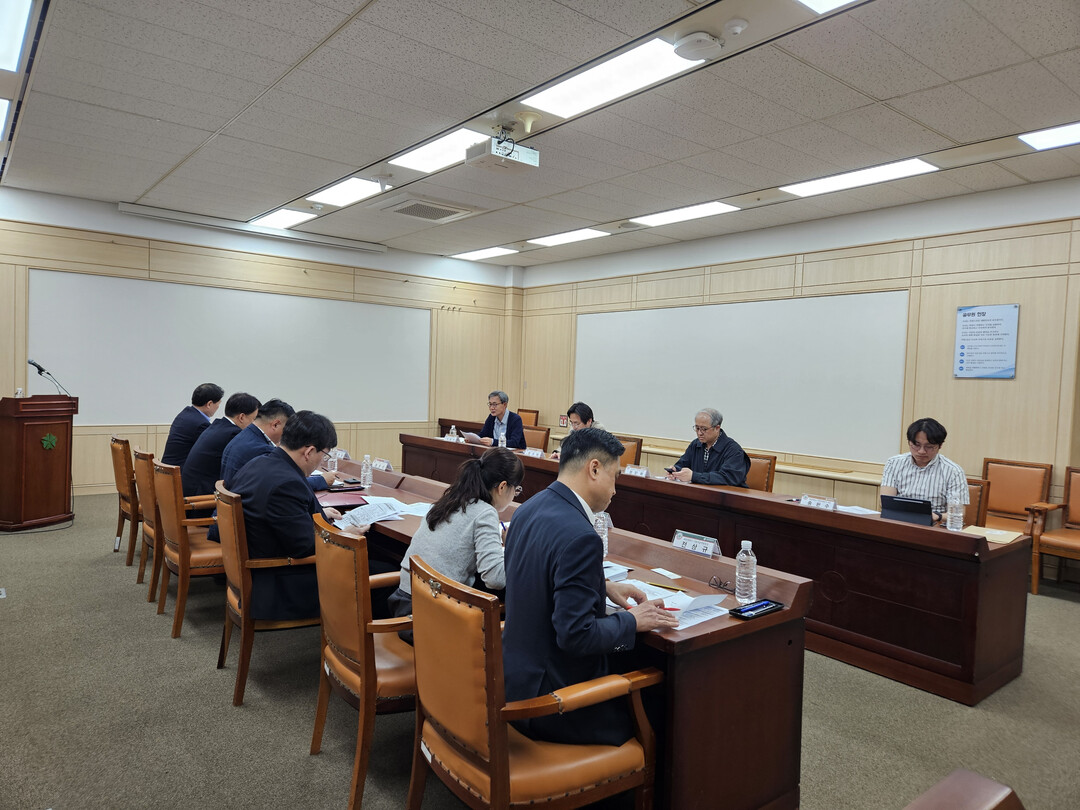
Daejeon Metropolitan City is entering the final stretch of its determined campaign to secure the prestigious Glocal University designation for its local institutions of higher education. In a significant move underscoring the city's commitment to bolstering its academic landscape and fostering regional innovation, a final task force (TF) meeting was convened to meticulously review the innovation proposals submitted by the aspiring universities. This crucial step precedes the Ministry of Education's impending announcement of preliminary selections in May, with the ultimate cohort of Glocal Universities slated for confirmation in September.
The competition for the Glocal University 30 initiative, a national project aimed at transforming regional universities into globally competitive hubs, has garnered considerable interest in Daejeon. A total of eight universities, encompassing three distinct application categories, are vying for inclusion. This robust participation reflects the city's vibrant academic ecosystem and the proactive measures undertaken by both the institutions and the municipal government.
The application landscape in Daejeon showcases a diverse range of collaborative and independent bids. In the integrated model, two prominent national universities, Chungnam National University and Kongju National University, have joined forces, signaling a strategic alliance to leverage their combined strengths and resources. A unique consortium application sees Mokwon University, Pai Chai University, and Daejeon Institute of Science and Technology pooling their expertise and resources under a unified banner, highlighting the potential for synergistic educational and research endeavors. Additionally, four well-established universities in Daejeon – Daejeon University, Woosong University, Hannam University, and Hanbat National University – are pursuing the Glocal University designation through independent applications, each presenting their distinct visions for innovation and regional impact.
Recognizing the significance of this national initiative, Daejeon City proactively established dedicated support teams for each applicant university in February. This strategic framework facilitated a collaborative approach, enabling the city to actively solicit feedback from the institutions and tailor support mechanisms to their specific needs and aspirations. Regular TF meetings served as vital platforms for dialogue, ensuring that the universities' proposals aligned with the overarching goals of the Glocal University project and the developmental priorities of Daejeon.
Demonstrating the city's unwavering commitment, Goh Hyun-deok, the Director-General of Education Policy and Strategy for Daejeon, engaged directly with university leadership in April. These in-depth interviews provided a crucial avenue for understanding the nuances of each institution's preparedness, identifying potential challenges, and ascertaining the specific support required from the municipal government. This hands-on approach underscores Daejeon's proactive role in facilitating successful applications.
The culminating TF review process was designed to provide a rigorous assessment of the universities' innovation blueprints. Recognizing the diverse needs of the applicants, the review accommodated both in-person and written submissions. Universities opting for face-to-face evaluations benefited from intensive scrutiny on April 28th and 29th. These sessions brought together experts from relevant municipal departments and innovation-focused organizations to conduct a comprehensive analysis of the submitted proposals.
The central focus of the final review was the detailed innovation plan presented by each university. Experts meticulously evaluated the alignment of each institution's specialized fields with Daejeon's broader development strategy. Furthermore, a critical aspect of the assessment involved gauging the proposals' adherence to the evaluation criteria set forth for the preliminary Glocal University designation. This thorough examination aimed to refine the innovation proposals, ensuring they were compelling, strategically sound, and demonstrably capable of contributing to regional growth and global competitiveness. The process emphasized enhancing the overall quality and persuasive power of each application to maximize the chances of securing the coveted Glocal University status.
Director-General Goh Hyun-deok expressed optimism regarding the outcome of the rigorous preparation process undertaken by the universities. "Each university has poured significant effort into their preparations, and we are hopeful for positive results," he stated. Emphasizing the city's ongoing commitment, he added, "Even after the preliminary designation results are announced, Daejeon City will remain fully prepared to provide comprehensive support to ensure our universities achieve the final Glocal University designation." The city's proactive and collaborative approach underscores its dedication to elevating its higher education sector and positioning Daejeon as a leading hub for innovation and academic excellence.
[Copyright (c) Global Economic Times. All Rights Reserved.]






























